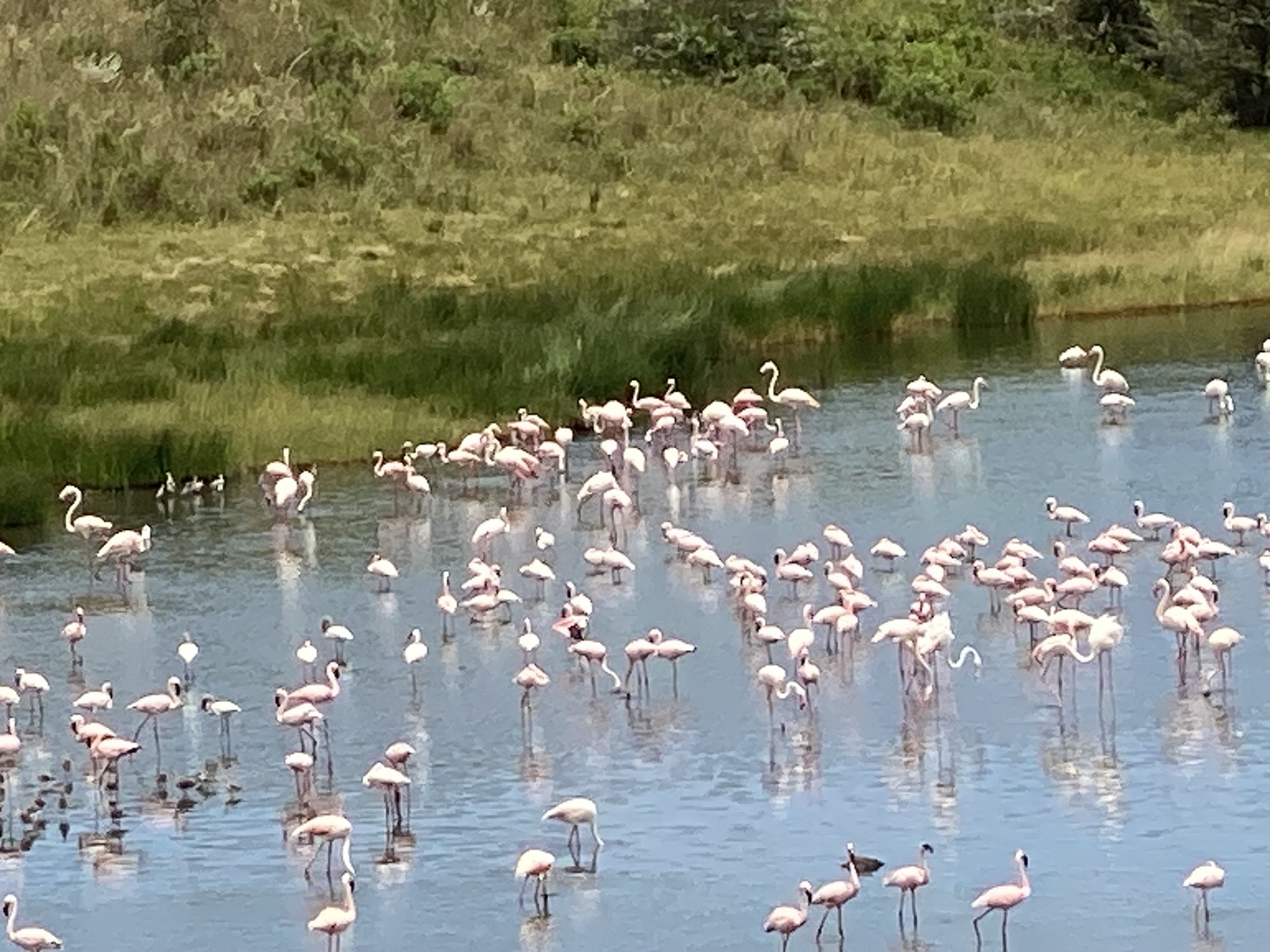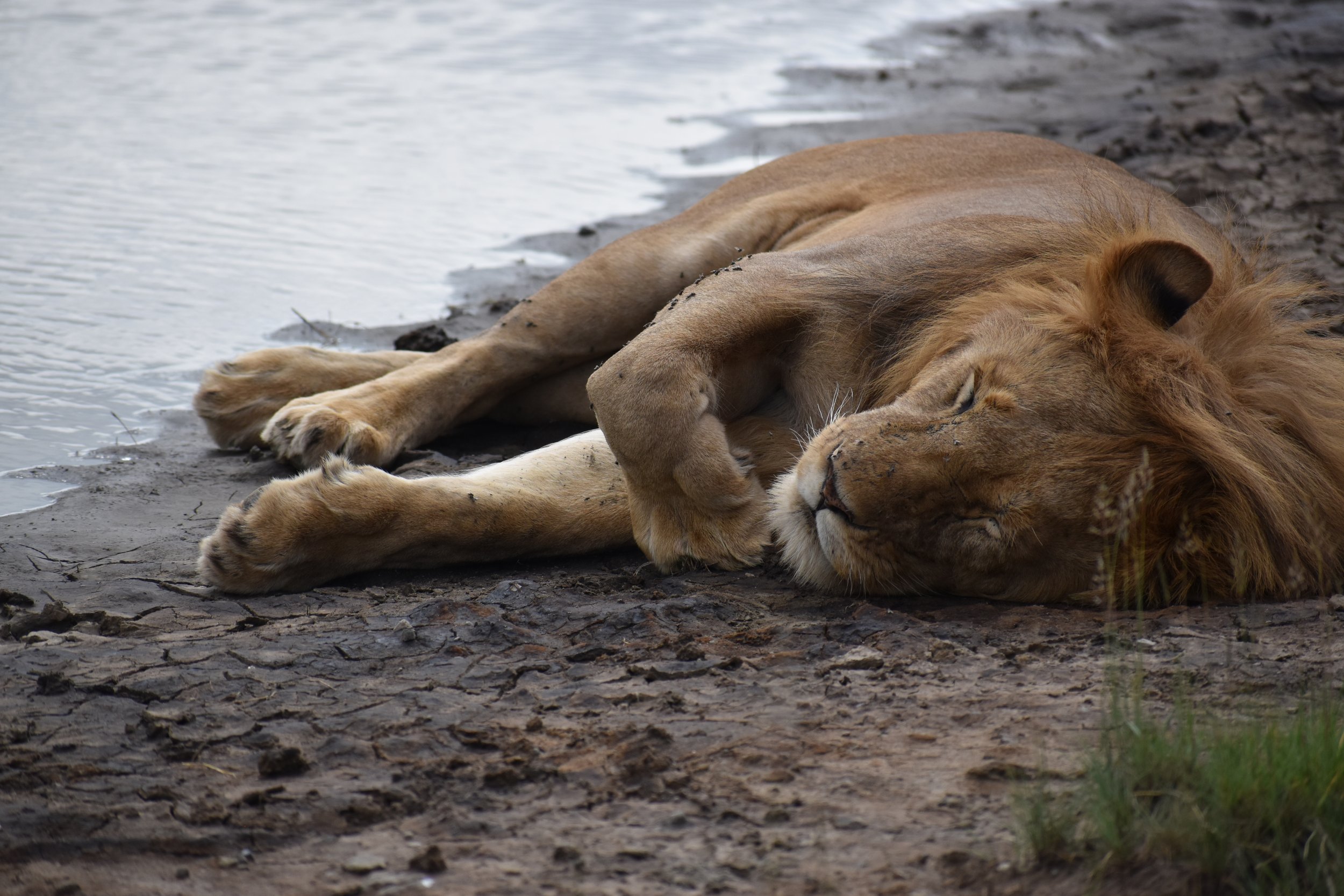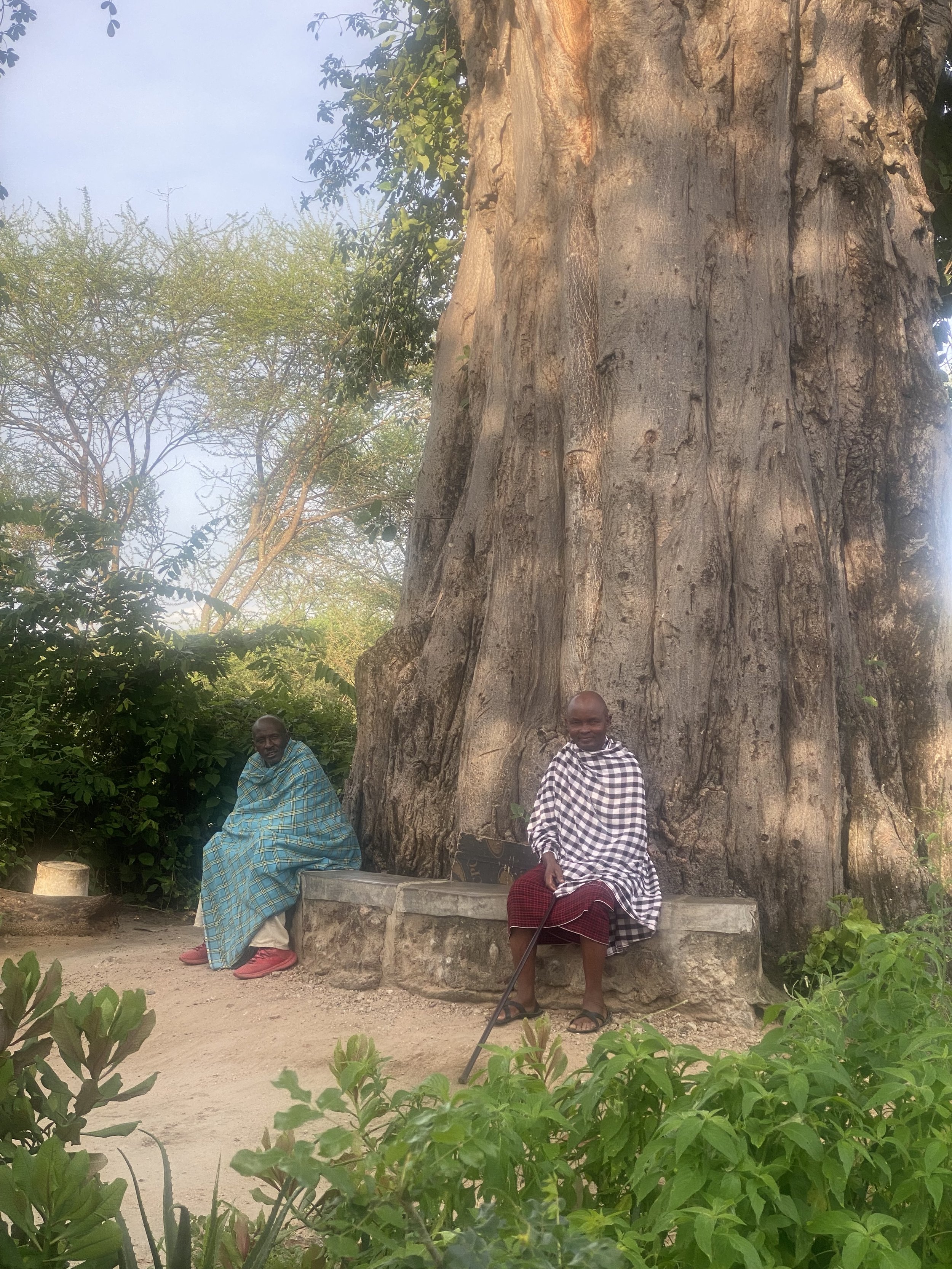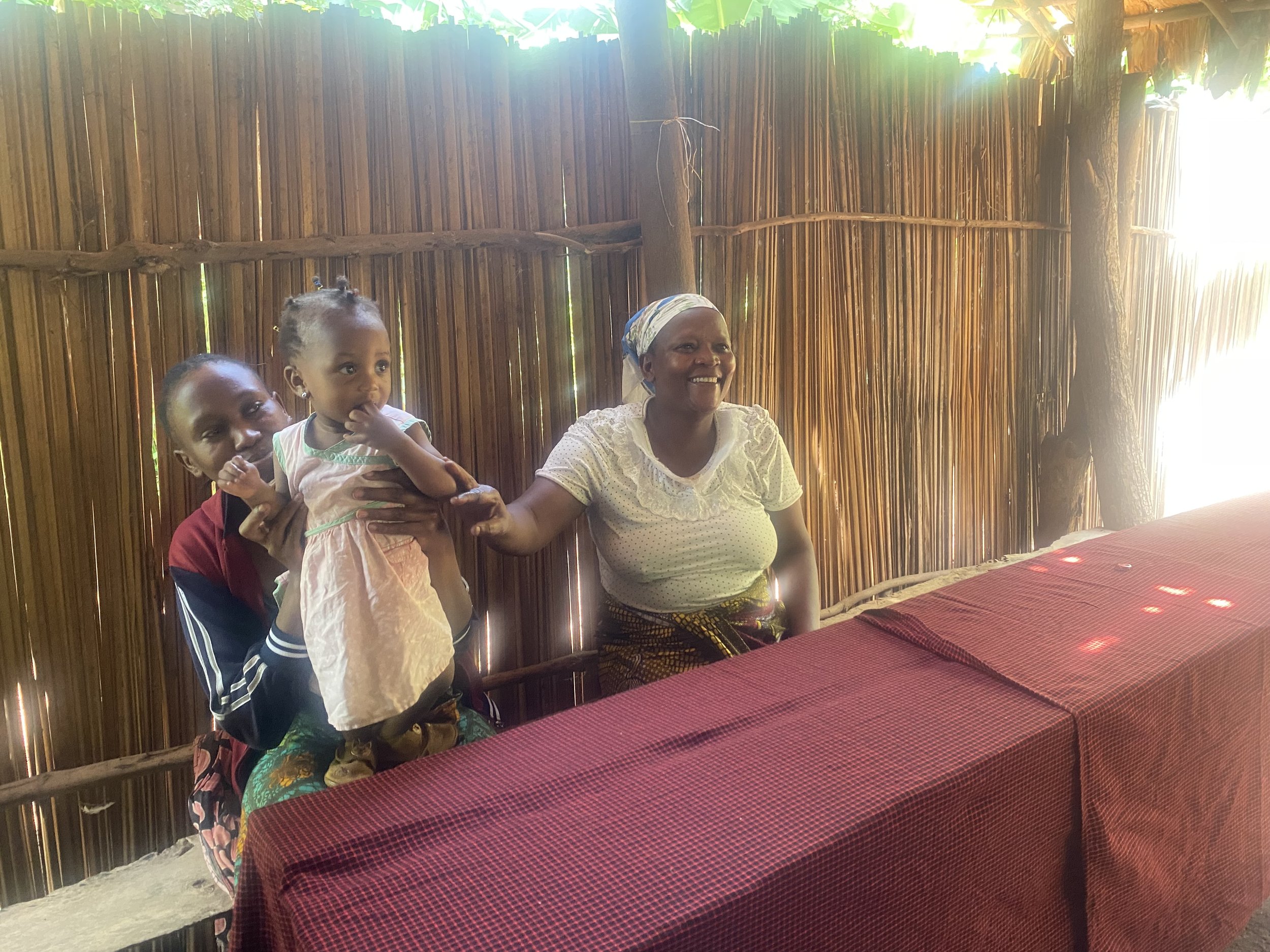DECEMBER TO FEBRUARY 2025
10 days (price quoted based on lodging selection)
CALVING SEASON SAFARI
Embark on an unforgettable journey through Tanzania’s wilderness. The Great Migration calving season occurs every year between January and March. Thousands of wildebeest calves are born daily along with baby zebra foals, gazelle fawns, warthog piglets, baby baboons, giraffe calves, and baby elephants. And you can see them taking their first steps. On game drives, you will likely spot the Big 5 (lions, leopards, buffalo, rhinos, and African elephants) along with countless other species in their natural habitats.
HIGHLIGHTS
Visit Ngorongoro Crater - the world’s largest intact volcano caldera
Witness the Great Migration and Calving Season in Southern Serengeti (Ndutu)
Big 5 sightings throughout the trip
Cultural visits with Masaai and Hadza tribes.
Our small group expeditions (up to 6 people per vehicle) ensure that everyone gets a window seat. Tours are tailored to the interests and travel styles of your group.
DAY 1: INTERNATIONAL ARRIVALS
Karibu (Welcome to) Tanzania!
Upon arrival at Kilimanjaro International Airport, your private naturalist guide will be waiting to transfer you to your boutique lodge for your first night before beginning your safari.
After you settle in, your guide will go over safari plans and give you a brief orientation to Tanzania and what you need to know for your safari. He'll go over maps of your route, topography and the location of the migration.
Accommodations: Under the Shade Safari Lodge
DAY 2: ARUSHA
Enjoy a leisurely morning recovering from your travels and then set out for activities of your choice in and around Arusha. These are some of the many things to see and do.
Game drive in Arusha National Park
Shopping at the Maasai Market and Tanzanian Art and Cultural Center
Hiking in the foothills of Mount Kilimanjaro
Materuni Waterfall and Kikulewa Hot Springs
Coffee farm tour and explore local Chagga (tribe) cave system
Tanzanite museum tour
Kilimanjaro Golf and Wildlife Estate
Horseback riding or biking tours around Arusha or Kilimanjaro
Cultural visits with local tribes
Meet nonprofit leaders of conservation or microenterprise projects
Accommodations: Under The Shade Safari Lodge
Meals: breakfast, lunch, dinner
Some activities above will incur an additional charge.



DAY 3: TARANGIRE
Your safari begins in Tarangire National Park, an off the beaten path reserve surrounded by amazing African baobab trees. With around 4,000 elephants, Tarangire boasts the largest elephant population in Tanzania. And as the sole source of water in the area, the Tarangire River attracts thirsty elephants, wildebeests, zebras, gazelles, hartebeests, buffalos, lions, and leopards who drink and graze around its banks. The park is also great for birding with over 500 species including birds of prey, woodland birds and migratory birds.
Accommodations: Tarangire Osupuku Lodge or Tarangire Kati Kati Camp
Meals: breakfast, lunch, dinner
DAY 4: TARANGIRE
Along with your game drive, you'll have the chance to explore Tarangire on foot. An armed park ranger will lead you on a two-hour nature walk to spy on birds, zebras, giraffes, elephants, and other amazing creatures across the plains.
While in Tarangire, you will meet with conservationists from the nonprofit African People & Wildlife, which is working with local tribes to conserve lions and elephants by preventing human-wildlife-conflict.
Accommodations: Tarangire Osupuku Lodge or Tarangire Kati Kati Camp
Meals: breakfast, lunch, dinner



DAY 5: LAKE MANYARA / KARATU
Next, you will journey to Lake Manyara National Park, a scenic reserve which is famous for its tree climbing lions, tremendous elephant herds, and soda ash lake with great birdlife. Keep a lookout for pink flamingos, pelicans, heron, spoonbill, ibis, eagles, mousebirds, hornbills, kingfishers, barbets, woodpeckers, swallows, flycatchers, starlings, sunbirds, weavers, and rollers (need we continue). You'll also come across wildebeests, giraffes, buffaloes, zebras, impalas, warthogs, waterbucks, and hippos.
It is also possible to visit a Maasai village on this day for an introduction to the community and to learn about the Maasai culture.
You'll stop in Mto wa Mbu village, a melting pot of 127 different ethnic tribes. You can have lunch with a local family and sample East African cuisine, then tour their banana plantation and visit nearby artist collective.
After lunch, you will depart for Karatu, a lively small town 20 miles south of the Ngorongoro Conservation Area. The town has well-established coffee plantations and forests, and is a bustling mix of old and new with safari vehicles and colorful tuk-tuks driving beside Maasai herders and ox-carts. Karatu has a bank, shops, and a few artist collectives.
Accommodations: Acacia Farm Lodge
Meals: breakfast, lunch, dinner


DAY 6: NGORONGORO
Descend into the Ngorongoro Crater, a UNESCO World Heritage site and the world’s largest unbroken caldera (11 miles in diameter). The Ngorongoro Crater was formed about 2.5 million years ago when the cone of a large active volcano collapsed inward. Before the volcano erupted, it was believed to be taller than Mount Kilimanjaro. The Crater has its own unique ecosystem with a variety of habitats; open grasslands, acacia forests, a soda lake, swamps, and hippo pools. You’ll see large herds of resident wildebeests, elephants, rare black rhinos, black mane lions, giraffes, zebras, hippos, and hundreds of bird species.
Accommodations: Acacia Farm Lodge
Meals: breakfast, lunch, dinner



DAY 7: SERENGETI (NDUTU)
(Option 1: Archaeology + game drives) Next you can visit Olduvai Gorge, the world famous paleoanthropological site where the remains of the first humans were discovered. You'll have a private guided tour of the dig site and the camp where Drs. Mary and Louis Leakey and other archaeologists lived while excavating. There's an interesting museum housing the primitive tools and the fossilized hominid remains (Australopithecus boisei and Homo habilis) including the 3.7 million year old footprints and a 1.8 million year old human skull.
Afterwards, you'll drive into Serengeti National Park looking for lions, leopards, and cheetahs along the way.
(Option 2: More wildlife viewing) You can skip the visit to Olduvai Gorge and head directly to Serengeti Ndutu region and enjoy a full day game drive. In this case, you would stay overnight at Sero Camp Ndutu on Day 6.
Accommodations: Sero Camp Ndutu
Meals: breakfast, lunch, dinner
DAY 8: SERENGETI (NDUTU)
Serengeti National Park is one of the most spectacular wildlife safari destinations in the entire world. It is a UNESCO World Heritage Site, most famous for the Great Migration of over 1.5 million wildebeests and 250,000 zebras traveling across Tanzania and Kenya in search of water and grazing land. It is teeming with big cats (4,000 lions, 1,000 leopards, 500 cheetahs) who prowl among the herds.
Migrating herds congregate on the short grass plains of Ndutu (southern Serengeti) during “calving season” in January, and by February more than 500,000 baby wildebeests have been born. You will also see lots of baby zebra foals, gazelle fawns, warthog piglets, baby baboons, giraffe calves, and baby elephants taking their first steps. Predators rest nearby eager to prey on the newborns. Migrating birds are abound at this time making it prime for birdwatching.
Accommodations: Sero Tented Camp Ndutu
Meals: breakfast lunch dinner
DAY 9: SERENGETI CENTRAL
Morning and afternoon game drives enroute to and around central Serengeti.
Accommodations: Suenos Camp
Meals: breakfast, lunch, dinner
DAY 10: LAKE EYASI, ARUSHA AND DEPARTURE
Your last safari day will begin near Lake Eyasi, where you'll meet a Hadza community. The Hadza people have lived around Lake Eyasi for thousands of years. They are one of the few hunter-gatherer societies in Africa, living off the berries, roots, honey, and tubers they forage and any game they kill. The Hadza speak a unique language using clicks. A local interpreter will help you interact with members of the tribe and learn about their culture and routines like preparing arrows for hunting game. Visiting the Hadza is like traveling back in time. You’ll never forget this incredible encounter.
Afterwards, you can visit some Datoga tribe, who live an agrarian lifestyle, growing maize, beans, and millet, and also working as blacksmiths. Datoga blacksmiths make the arrows and tools, as well as unique handcrafted jewelry which are great souvenirs.
You will have the option of a picnic lunch at the Lake or to stop in Mto was Mbu village for a local lunch.
You will return to Under the Shade to relax in a day room until your international flight from JRO or domestic flight from Arusha Airport.
Arusha Airport has service to Zanzibar. From Zanzibar, you can fly directly to Istanbul, Doha, Dubai, Johannesburg, Zurich, Rome, Frankfurt, and Verona.
Day room: Under the Shade Safari Lodge
Meals: breakfast and lunch. Dinner on your own.


REGISTRATION & PRICING
A non-refundable deposit of $600 per person is required to register and reserve space on the program. We accept payment by Zelle, Paypal (including credit cards), and personal checks. Final payment is due to Guided Tanzania LLC 90 days prior to departure.
Trip Estimate: From $6,690 per person*
Single Supplement: $965
Deposit Due at Registration: $600 (non-refundable)
Final Payment Deadline: 90 days prior to departure
* The final cost of your safari will be based on your accommodations, the number of travelers, room occupancy, and activities you choose. Final prices will be confirmed upon receipt of registration and confirmation with the lodges and tented camps.
What’s Included
All accommodations and meals (all inclusive)
Expert naturalist guide throughout your trip
Unlimited mileage on your private safari Land Cruiser
All ground transfers with private driver and guide
All entrance fee, tours and activities in the itinerary (unless specified)
24/7 support during and after your trip.
Flying Doctor coverage
Donation to African People & Wildlife
Exclusions
International flights
Visa
Personal expenses (shopping, phone calls, laundry,* etc.)
Travel & medical insurance


